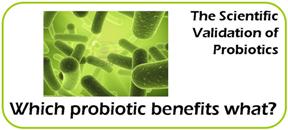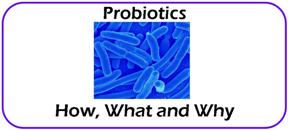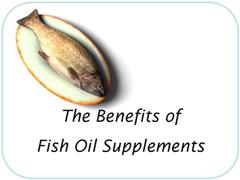|
What Causes Autism? Is it Our Food Supply?What causes autism? The answer could be in what we eat. Researchers found that the Standard American Diet, rich in high fructose corn syrup, and deficient in minerals, may be contributing to the tragic national autism epidemic. In a recent study published April 10, 2012, by Renee Dufault and colleagues, in the Clinical Epigenetics Journal, a team of researchers examined the food supply in relation to the rise in autism. 
Specifically, the researchers compared two large populations – those of the United States and Italy – in both their food supply and autism prevalence. These researchers, who also put forth the “Mercury Toxicity Model” in 2009, believe that autism is a result of the interplay between innate gene function, and environmental toxicity… a theory that has scientific support, and is gaining ground in many scientific and medical circles.
The BasicsThe authors establish a theory of what causes autism and ADHD: that it is the result of a complex interplay between factors that regulate gene expression, nutritional status, and a toxic burden. The ultimate outcome is neural toxicity, and impaired neural function or development. The players that the authors consider are:
The basic cascade of events looks something like this: 1)High fructose corn syrup consumption leads to mineral deficiencies in zinc, and calcium, among other imbalances. 2) High fructose corn syrup also contains mercury, and burdens the liver (a major detoxifying organ). 3)Zinc deficiency and the presence of mercury both inhibit the body’s ability to clear heavy metals. 4)Calcium deficiency impairs the body's ability to clear organophosphates from pesticides. 5)The mineral imbalance leads to increased vulnerability to toxicity from heavy metals such as lead or mercury, and organophosphates from pesticides. 6)Heavy metal and organophosphate toxicity can affect neural development.
Some Autism StatsThe CDC estimates that 1 in 88 children in the United States have been diagnosed with autism spectrum disorders (1.14%). This represents a 78% increase in autism spectrum disorders since 2002.In comparison, it is estimated that only 0.1% of Italian children have been diagnosed with autism spectrum disorders. Autism spectrum disorders vary in both countries by region and population, which makes gene-environment interactions and diet prime suspects for understanding what causes autism. The Mercury Toxicity Model – Why High Fructose Corn Syrup MattersThe Mercury Toxicity Model holds that autistic children experience a heavy metal burden because of the interaction between diet and the molecules required to clear heavy metals. Specifically, high fructose corn syrup depletes zinc and contains low levels of mercury. Zinc depletion and mercury levels both impair the ability of metal-binding molecules in autistic children to remove heavy metals, thereby causing the neural toxicity seen in autism spectrum disorders. In addition, by this method, any heavy metal burden in the environments of autistic children (mercury in air pollution, lead in water, etc) will further exasperate the problem. You can check out the authors' diagram of the Mercury Toxicity Model. High Fructose Corn Syrup Does More Than SweetenThe USDA warns that consumption of high fructose corn syrup can cause a depletion of calcium, and a phosphorus imbalance when magnesium levels are low. According to the CDC in 2003, the majority of adults in the United States do not consume adequate amounts of magnesium. Autistic children have lower magnesium levels on average than their healthy counterparts. In both cases, these people are at an increased risk of mineral imbalance with high fructose corn syrup consumption. In fact, autistic children do tend to have lower levels of calcium and higher levels of copper. Low levels of minerals such as zinc, calcium and magnesium can contribute to increased levels of lead in the body. It is well known that lead has a toxic effect on the neural development of children. In fact, high lead levels are found in some children with autism and have been associated with the development of ADHD. Since high fructose corn syrup is known to affect mineral balance, it could underlie the development of these neurological disorders via heavy metal regulation. So while we point at heavy metals as the culprit for what causes autism, it could be that the high consumption of high fructose corn syrup actually underlies the heavy metal toxicity. But Wait… There’s More! Pesticides Contribute, tooTo further limit the body’s detoxification processes, low calcium levels - low calcium levels created by high fructose corn syrup consumption - can also reduce the biochemical ability to remove organophosphates from the body. Mercury – also found in high fructose corn syrup – can also impair that same enzyme that detoxifies organophosphates from the body. Therefore, increased consumption of high fructose corn syrup could cause an increased toxicity from organophosphate pesticides via multiple mechanisms. Organophosphates are a toxic form of chemicals most commonly found in pesticides, and most commonly consumed in grains such as wheat and corn. Organophosphate toxicity, like lead, can impair neuronal activity through oxidative stress. Autistic children have been shown to have reduced activity of the organophosphate-clearing enzyme, leading to an increased toxic burden on their bodies. Are pesticides, and specifically, the inability to clear them what causes autism? The enzyme that clears organophosphates does not show the same epigenetic variation (gene regulation) in Italy as it does in autistic subpopulations in the United States. Also, high fructose corn syrup consumption is rare in Italy, leading the authors to speculate that some of the epigenetic variation may be a direct result of high fructose corn syrup consumption. Pesticides Have a HistorySeveral studies have shown that high pesticide concentrations have a detrimental impact on cognitive development. The fact that high fructose corn syrup is impairing the body’s ability to remove organophosphates, only exaggerates an already toxic problem. A higher concentration of organophosphate metabolites in the urine of pregnant women is associated with lower cognitive scores in the children at 7 years of age, lower birth weights, and developmental delays equivalent to 18-24 months. United States’ consumers have eaten over 20 pounds of high fructose corn syrup per capita annually since the 1980’s. In 2004, it reached 60 pounds of high fructose corn syrup per capita annually. In contrast, Italy’s consumption of high fructose corn syrup is negligible. The presence of thimerosal-containing vaccines, mercury in the air pollution, dental amalgam fillings, and seafood consumption are not significantly different between the two countries. So while these additional sources of mercury contribute to the overall toxic load, they are unlikely to explain the differences in autism prevalence among the two populations. DiscussionThere is good scientific evidence of the molecular and biochemical interactions that the authors cite in their theory. And the population differences in diet and autism prevalence are significant. However, more research is required to confirm that the sequence of events presented is, in fact, taking place within humans who have been diagnosed with autism or ADHD. However, in one study, autistic and ADHD children fed an organic diet low in fructose, and free of all food colorings and preservatives, along with glutathione and B12 supplements showed significant improvements. (Folate and vitamin B12 are also important for preventing epigenetic modulation resulting from oxidative stress.) As with any discussion of a spectrum disorder, in which there are many varieties like autism and ADHD, it is possible that the results or theories may only be applicable to a subset of those with the disease. Ultimately, the authors suggest that what causes autism is a complicated interaction between environmental exposure, nutrition, and genetic factors. The authors make a compelling argument for the interaction between genetic expression, diet, and environmental toxins that may contribute to neurological disorders in general, and autism and ADHD in particular. Here's my question for you...Do you have any experience with nutrition “therapy” for autism or ADHD? What do you think of the authors’ theory of what causes autism? Return to
The Latest Science News
from
What Causes Autism? Is it Our Food Supply?
References Dufault R, WJ Lukiw, R Crider, R Schnoll, D Wallinga, R Deth. “A macroepigenetic approach to identify factors responsible for the autism epidemic in the United States.” Clinical Epigenetics. 2012; 4(6). |












